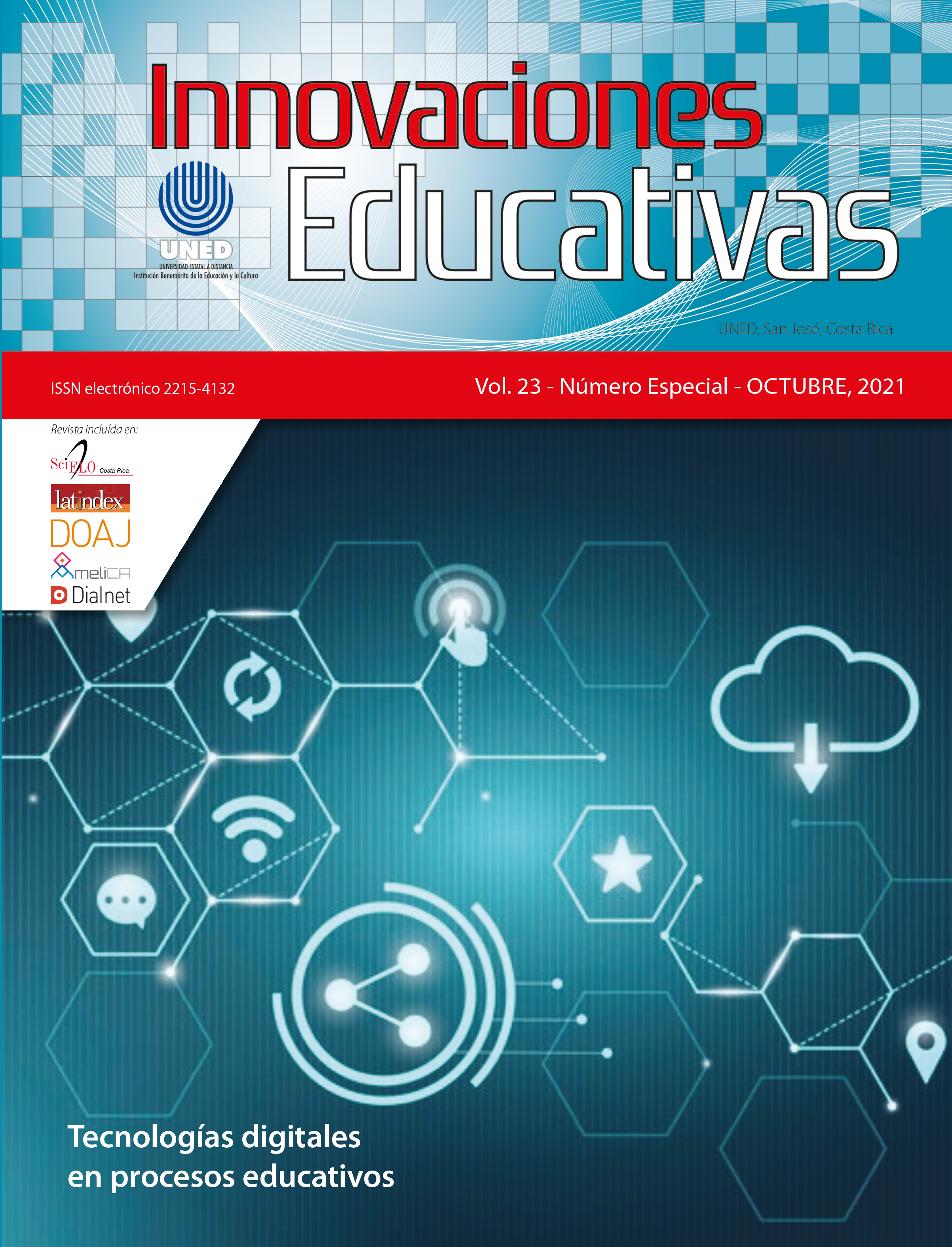ICT teacher professional development in intercultural contexts. The experience of the Baccalaureate in Education Sciences, I and II cycles, with an emphasis on language and Cabecar culture
DOI:
https://doi.org/10.22458/ie.v23iEspecial.3659Keywords:
Teacher training, teacher skills, educational technology, intercultural education, cabecar, professional developmentAbstract
The experience of the educational process in the use of information and communication technologies (ICT), implemented in the project that imparts the interuniversity career of baccalaureate in Education Sciences I and II Cycles, with an emphasis on Language and Culture Cabécar, is taken as an object of study to identify findings that contribute to the construction of an improved and updated proposal for the offer of the third cohort. It specifically addresses professional development for the acquisition of teaching skills in the use of ICT, which has been revealed, in the Eighth State of Education report (2021), as one of the deficit areas in teaching staff. The choice of this area lies in the importance that teachers achieve an adequate use of ICT for the development of educational processes and the achievement of their educational goals, with ethical use, which transcends in student training. This analysis is complemented by the study of theoretical and practical proposals around teacher professional development, without neglecting the intercultural context of the project. The experience of the educational process in the use of information and communication technologies (ICT), implemented in the project that imparts the interuniversity career of baccalaureate in Education Sciences I and II Cycles, with an emphasis on Language and Culture Cabécar, is taken as an object of study to identify findings that contribute to the construction of an improved and updated proposal for the offer of the third cohort. It specifically addresses professional development for the acquisition of teaching skills in the use of ICT, which has been revealed, in the Eighth State of Education report (2021), as one of the deficit areas in teaching staff. The choice of this area lies in the importance that teachers achieve an adequate use of ICT for the development of educational processes and the achievement of their educational goals, with ethical use, which transcends in student training. This analysis is complemented by the study of theoretical and practical proposals around teacher professional development, without neglecting the intercultural context of the project.
References
Programa Estado de la Nación (2021). Octavo informe del estado de la educación: resumen. San José:
PEN-CONARE.
Instituto Costarricense de Electricidad (ICE) (s.f.). https://mapas.ice.go.cr/MapasCobertura/
Instituto Nacional de Estadística y Censos (INEC) (2011). Distribución porcentual de las personas por número
de carencias críticas, según cantón. Censo 2011. http://www.inec.go.cr/censos/censos-2011
International Society for Technology in Education (ISTE) (s.f.). https://www.iste.org/standards/
iste-standards-for-teachers
Leiva, J.J. y Priegue, D. (2012). Educación intercultural y TIC: claves pedagógicas de la innovación y el
cambio social en el siglo XXI. @TIC: Revista d’Innovació educativa, (9), 32-43. https://dialnet.unirioja.es/
servlet/articulo?codigo=4294298
Martínez, F. (2010). Las redes digitales como marco para la multiculturalidad. Sevilla: MAD Eduforma.
UCR-UNA-UNED (2009). Plan de estudios de Bachillerato en Ciencias de la Educación, I y II Ciclos, con
énfasis en Lengua y Cultura Cabécar. CONARE.
UCR-UNA-UNED (2016). Orientaciones para el curso Tecnología Educativa.
UNESCO (2019). Marco de competencias de los docentes en materia de TIC. http://eduteka.icesi.edu.co/pdfdir/
unesco-competencias-tic-docentes-version-3-2019.pdf
Valencia-Molina, T., Serna-Collazos, A., Ochoa-Angrino, S., Caicedo-Tamayo, A., Montes-González, J. &
Chávez-Vescance, J. (2016). Competencias y estándares TIC desde la dimensión pedagógica: Una perspectiva
desde los niveles de apropiación de las TIC en la práctica educativa docente. Pontificia Universidad Javeriana,
Cali. http://www.unesco.org/new/fileadmin/MULTIMEDIA/FIELD/Santiago/pdf/Competencias-estandares-
TIC.pdf
Zúñiga, M., Molina, M. I., Picado, K. y Solano, R. (2021). Competencias digitales de los docentes: desafíos y
ruta de acción para lograr un uso efectivo y sostenido de las TIC al servicio del mejoramiento educativo.
Ponencia preparada para el Octavo informe del estado de la educación. San José: PEN-CONARE.

